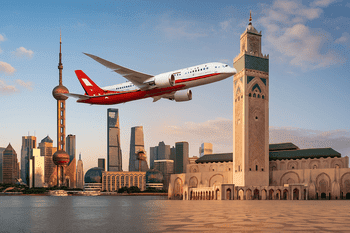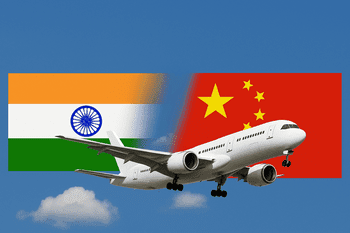
Choosing between Beijing and Shanghai is a crucial decision for expats moving to China.
This comprehensive guide analyzes living costs, quality of life factors, and practical considerations to help you make an informed choice.
All costs are presented in both CNY (¥) and USD ($) using current exchange rates.
Quick Comparison Table
| Expense Category | Beijing | Shanghai | Winner |
|---|---|---|---|
| Housing | ★★★☆☆ | ★★☆☆☆ | Beijing |
| Transportation | ★★★★☆ | ★★★★★ | Shanghai |
| Food & Dining | ★★★★☆ | ★★★☆☆ | Beijing |
| Healthcare | ★★★★☆ | ★★★★★ | Shanghai |
| Quality of Life | ★★★☆☆ | ★★★★☆ | Shanghai |
Average Monthly Budget (Single Expat)
Beijing
- Entry-level expat: ¥15,000-20,000 ($2,300-3,100)
- Mid-level expat: ¥25,000-35,000 ($3,900-5,400)
- Senior expat: ¥40,000+ ($6,200+)
Shanghai
- Entry-level expat: ¥18,000-25,000 ($2,800-3,900)
- Mid-level expat: ¥30,000-40,000 ($4,600-6,200)
- Senior expat: ¥45,000+ ($7,000+)
Source: Expatistan Cost of Living Index
Housing
Beijing Housing Market
Popular Expat Areas
- Chaoyang District (朝阳区)
- CBD area: ¥12,000-18,000 ($1,850-2,780) for 1BR
- Sanlitun: ¥10,000-15,000 ($1,550-2,320) for 1BR
- View Chaoyang listings on Lianjia
- Dongcheng District (东城区)
- Average: ¥9,000-14,000 ($1,390-2,160) for 1BR
- View Dongcheng listings on Ziroom
Shanghai Housing Market
Popular Expat Areas
- Jing’an District (静安区)
- Average: ¥12,000-20,000 ($1,850-3,090) for 1BR
- View Jing’an listings on SmartShanghai
- Former French Concession
- Average: ¥11,000-18,000 ($1,700-2,780) for 1BR
- View FFC listings on Housing Shanghai
Hidden Housing Costs
- Agency fee: 1 month’s rent
- Deposit: 2-3 months’ rent
- Utilities deposit: ¥500-1,000
- Property management fee: ¥200-500/month
Transportation
Beijing
- Subway: Starting at ¥3 ($0.46)
- Monthly pass: ¥200 ($31)
- Download Beijing Subway Map
- Popular Apps:
- DiDi (Chinese Uber)
- MetroMan (Subway navigation)
Shanghai
- Subway: Starting at ¥3 ($0.46)
- Monthly pass: ¥180 ($28)
- Download Shanghai Metro Map
Commute Times Comparison
| Area | Beijing | Shanghai |
|---|---|---|
| CBD to Suburbs | 45-60 mins | 35-50 mins |
| Within Center | 30-45 mins | 25-40 mins |
Healthcare
International Hospitals
Beijing
- United Family Healthcare
- Consultation: ¥800-1,200 ($124-185)
- Website
- Beijing International Medical Center
- Consultation: ¥600-1,000 ($93-155)
- Website
Shanghai
- Parkway Health
- Consultation: ¥900-1,300 ($139-201)
- Website
Insurance
- Local insurance: ¥300-600/month
- International coverage: ¥1,500-3,000/month
- Recommended providers:
Quality of Life Factors
Air Quality (2024 Average AQI)
- Beijing: 80-120
- Shanghai: 60-100
- Real-time AQI data
International Schools
Beijing
- Western Academy of Beijing
- Annual fees: ¥250,000-320,000
- Website
Shanghai
- Shanghai American School
- Annual fees: ¥280,000-350,000
- Website
Practical Money-Saving Tips
Banking & Payments
- Set up accounts with:
- WeChat Pay
- Alipay
- Local bank (BOC or ICBC recommended)
Shopping
- Use group-buying apps:
- Meituan (美团)
- Pinduoduo (拼多多)
Housing
Tax Considerations
Beijing
- Progressive rate: 3-45%
- Monthly tax-free allowance: ¥5,000
- Beijing Tax Calculator
Shanghai
- Similar rates to Beijing
- Additional deductions for housing rental
- Shanghai Tax Calculator
Currency Considerations
- Use XE Currency Converter for real-time rates
- Consider using international banks with presence in China:
- HSBC
- Standard Chartered
Conclusion
Beijing Advantages
- Lower overall living costs
- Stronger cultural experience
- Better food value
- Political center advantages
Shanghai Advantages
- More international atmosphere
- Better air quality
- More efficient public transport
- Larger expat community
Additional Resources
Official Government Sites
Expat Communities
Note: All prices and data are current as of February 2025. Regular updates will be made to reflect market changes.



